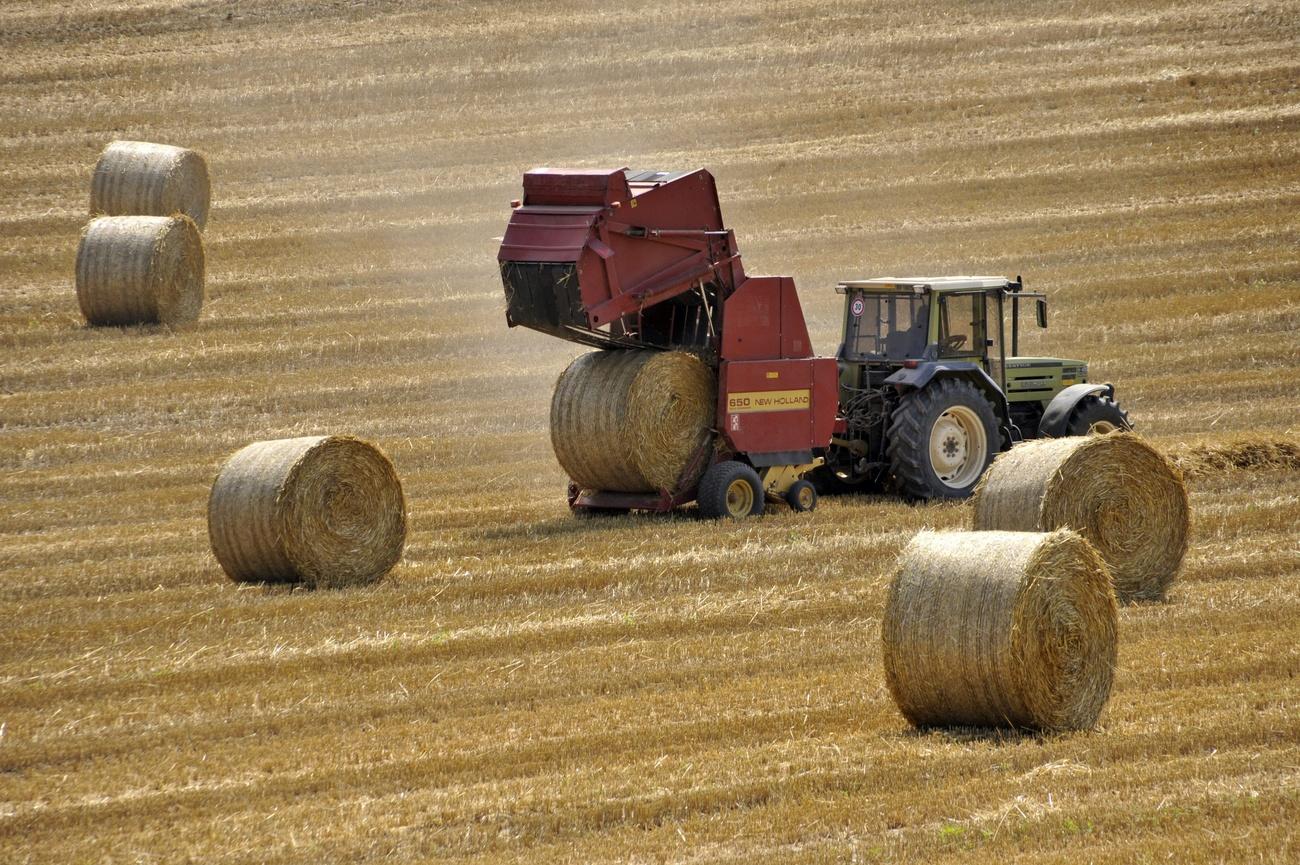
Farmers and climate activists join forces in Bern
Some 4,500 people demonstrated in Bern on Saturday to promote agriculture based on social and ecological values.
Under the slogan “food is political”, the participants demanded more sustainable farming, fair prices for farmers and the right to healthy and high-quality food for everyone.
The “Agriculture of the Future”External link alliance was created by activists concerned about climate change. Its supporters include some 30 groups representing farmers, the food industry, environmentalists and aid organizations.
In their view, global warming, social injustice and political failure have led to agriculture hurting nature as well as farmers. According to “Agriculture of the Future”, farming today is less about feeding the population than it is about generating profits for the few giants of the agri-food industry.
As a representative of the Small Farmers’ Association told the crowd gathered in front of the federal palace, “What we eat shapes our agriculture. What we eat shapes our landscape. And what we eat shapes our society”.
“The goal of the demonstration [was] to meet Swiss farmers, voice their demands and create a public debate on the theme of agriculture, based on the model of the climate strikes,” co-organizer Alexis Dubout told Swiss public radio, RTS.
By 2030, the activists want to see more organic and regenerative farming, fewer chemicals, a reduction in livestock, and stricter requirements for imported products.
At the end of last year, the Federal Office for Agriculture banned chlorothalonil, a fungicide used to prevent mildew and mould on crops.
This month the Federal Council presented a strategy to shrink the farming sector’s ecological footprint.

More
Swiss government sets out new greener farming policy

In compliance with the JTI standards
More: SWI swissinfo.ch certified by the Journalism Trust Initiative

























You can find an overview of ongoing debates with our journalists here . Please join us!
If you want to start a conversation about a topic raised in this article or want to report factual errors, email us at english@swissinfo.ch.